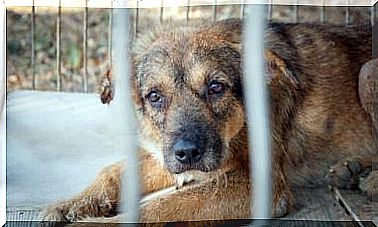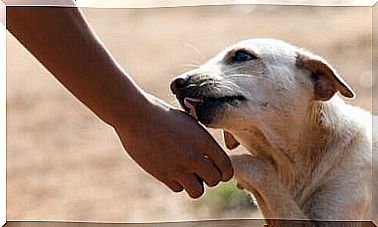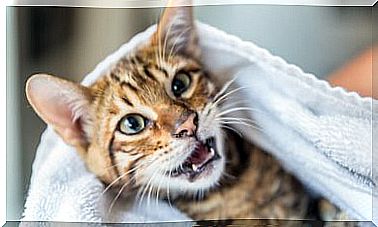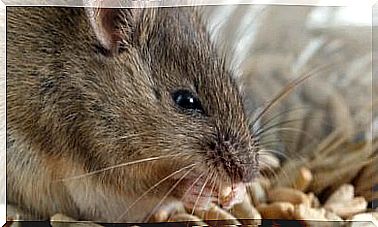What To Do In Case Of Cat Poisoning
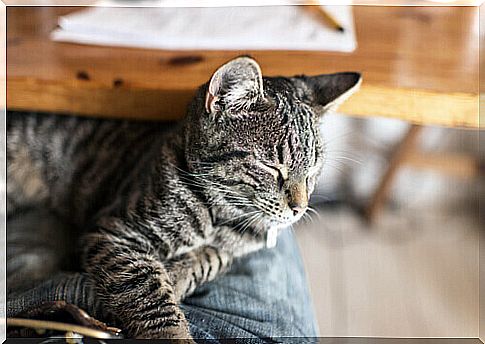
Animals that tend to be on the street are the most exposed to certain types of situations, such as consuming or finding poisonous herbs, ingesting or coming into contact with toxic foods, etc. Let’s now look at the particularities of poisoning in cats.
Sometimes it can lead to poisoning in cats, meaning that they are purposely induced to take certain substances by someone who wants to get rid of them. It can also happen that the poisoning happens by accident, especially if the cats spend a long time on the street, and accidentally eat a toxic food.
Poisoning in cats, all too frequent
Cats are statistically the most poisoned animals. Due to their agility and curiosity, they tend to spend a lot of time on the streets, rummaging through objects or garbage, and in this way they are more exposed to danger than other types of animals.
Types of poisons and risks

The dangerous substances that tend to cause poisoning in cats are: insecticides, medicines for humans, poisonous plants and foods that cats cannot digest.
As we will see, these poisons can be found anywhere. It is important to be careful in handling medicines and chemicals. The more we control our pet, the more risks we will avoid.
If we realize that poisoning may have occurred, we need to make sure that the cat drinks plenty of water. This is one of the main ways your body will excrete the poison or toxic product you ingest.
Symptoms of poisoning in cats
- Dilated pupils.
- Increased salivation.
- Coughing and sneezing.
- Appearance of foam in the mouth.
- Respiratory difficulties.
- Recurrent vomiting and diarrhea.
- He has a depressed and decadent attitude.
- Convulsions and tremors.
The ingested substance
Once the poisoning has been detected, the second step is to recognize the substance ingested by our animal, that is, we must recognize the poison. Then, the animal must be moved and aired in a place where it cannot hide. This will help us to keep the cat indoors so that we can keep it under observation.
Once we have discovered the substance and taking into account that we are in a delicate situation such as the poisoning of our beloved pet, we must calm down so as not to transmit these emotions to our cat.
It is not recommended to treat the animal without consulting a veterinarian, as there are drugs that can worsen the situation.
In general, you should not make your cat vomit, because some toxic acids can be more harmful if vomited, such as: petroleum derivatives (gasoline, lighter fluid, kerosene), detergents and rust. You can make the cat vomit when the poison has been ingested for more than two hours, if the cat is awake and can swallow the substance that will cause it to vomit and when you are more than sure that it has ingested a toxic substance.
Check the cat
It is necessary to check the cat’s skin once the treatment that the vet has recommended has been applied, so that we can make sure that the poison has been eliminated from the body of our feline.
Types of poisoning in cats
-
Arsenic
Arsenic can be ingested through pesticides, rat poisons, insecticides, etc. Symptoms of arsenic poisoning can be: diarrhea, the cat is depressed, excess sleep, weakness, etc.
In this case , drugs work to protect the stomach.
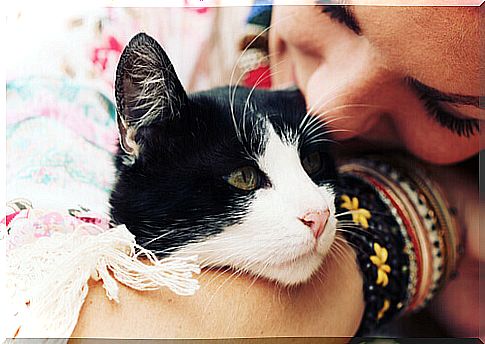
-
Soaps and detergents
Symptoms are usually not very serious. Vomiting, dizziness and diarrhea tend to be the most frequent. As for the treatment, the cat must ingest plenty of fluids, especially milk or water.
-
Chlorine
Chlorine is present in many products, such as in the case of industrial detergents, swimming pool water, household products, etc. Symptoms are similar to those of detergents. Also in this case, the effective treatment is to drink a lot of milk, even mixed with water.
Another important indication is not to feed our feline for a minimum period of twelve hours.
-
Cyanide
Cyanide can be found in various fertilizers and poisons. Cats usually ingest it by eating plants, as in the case of eucalyptus, corn, flax, etc. The visit to the vet is mandatory and urgent.
-
Chocolate
This can be one of our biggest mistakes. Our cat cannot take caffeine or other substances present in chocolate. The reason is that your body is unable to absorb these substances.
